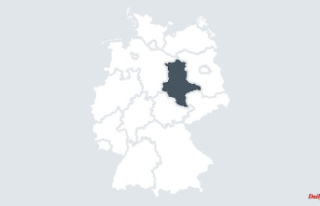Archaeologists from Tübingen have been researching the mythical city of Troy for 25 years. The field research was completed in 2012. However, the connection between Tübingen and Troy did not break off completely - as a show now shows.
Tübingen (dpa/lsw) - Around 150 years after the discovery of Troy by Heinrich Schliemann (1822-1890), the museum at the University of Tübingen is showing unpublished finds from the German archaeologist's excavations. At the same time, the Museum of the University of Tübingen is celebrating its 25th anniversary and Schliemann's 200th birthday with the exhibition, which will open on Friday and last until April 16th. A series of lectures is planned for the exhibition.
More than 200 originals from Schliemann's Troy excavations are stored in the archaeological collections in Hohentübingen Castle. Among the finds is, for example, a clay lid for a vessel in which a face can be seen. Loans from other museums are also on display, such as a gold earring with a pendant or a mug with an artistically curved double handle.
The names of the various departments are Troy Myth, Heinrich Schliemann, Excavation History since Schliemann, Tübingen Troy Project, Landscape and Architecture, Trade and Crafts and finally Troy Trash. In the last section you can see board and computer games as well as masks and knick-knacks all about Troy.
Tübingen researchers led the excavations in Troy for around 25 years, and retired in 2012. Ernst Pernicka's team is investigating ancient Troy. "We are still working on getting more information out of the finds. We are in the process of delivering an overall summary of the excavations. Four of the planned six volumes have already been written," said Pernicka on Thursday. Pernicka is senior professor for scientific archeology at the University of Tübingen and scientific director at the Curt-Engelhorn-Center Archaeometry in Mannheim and still head of the Troy project.












